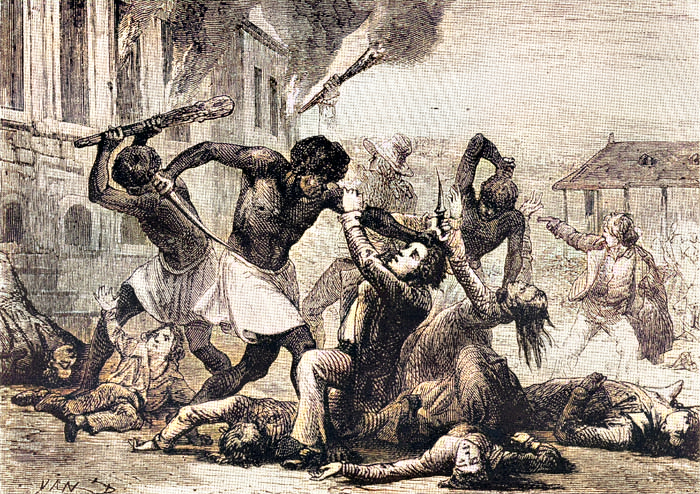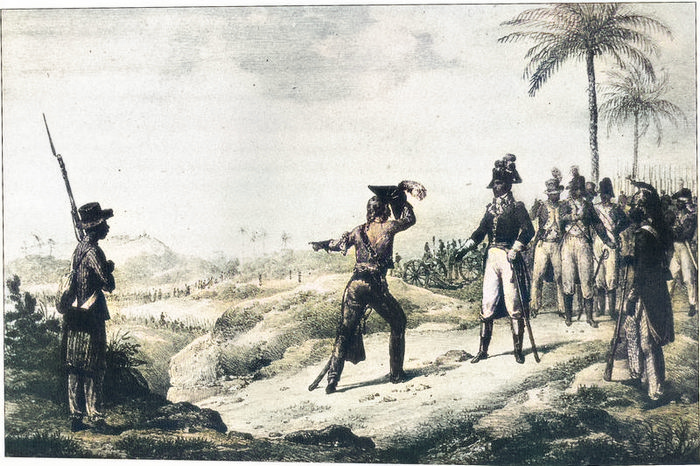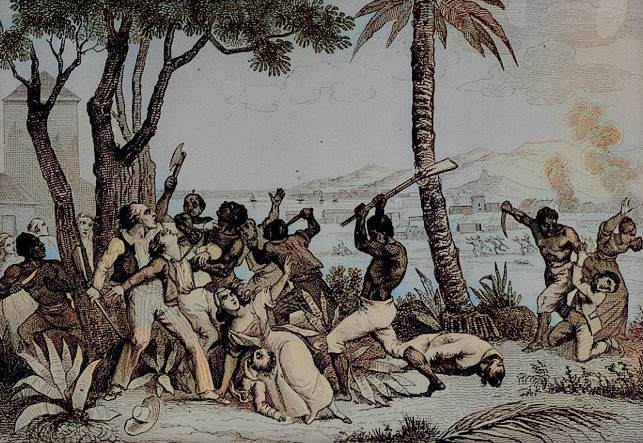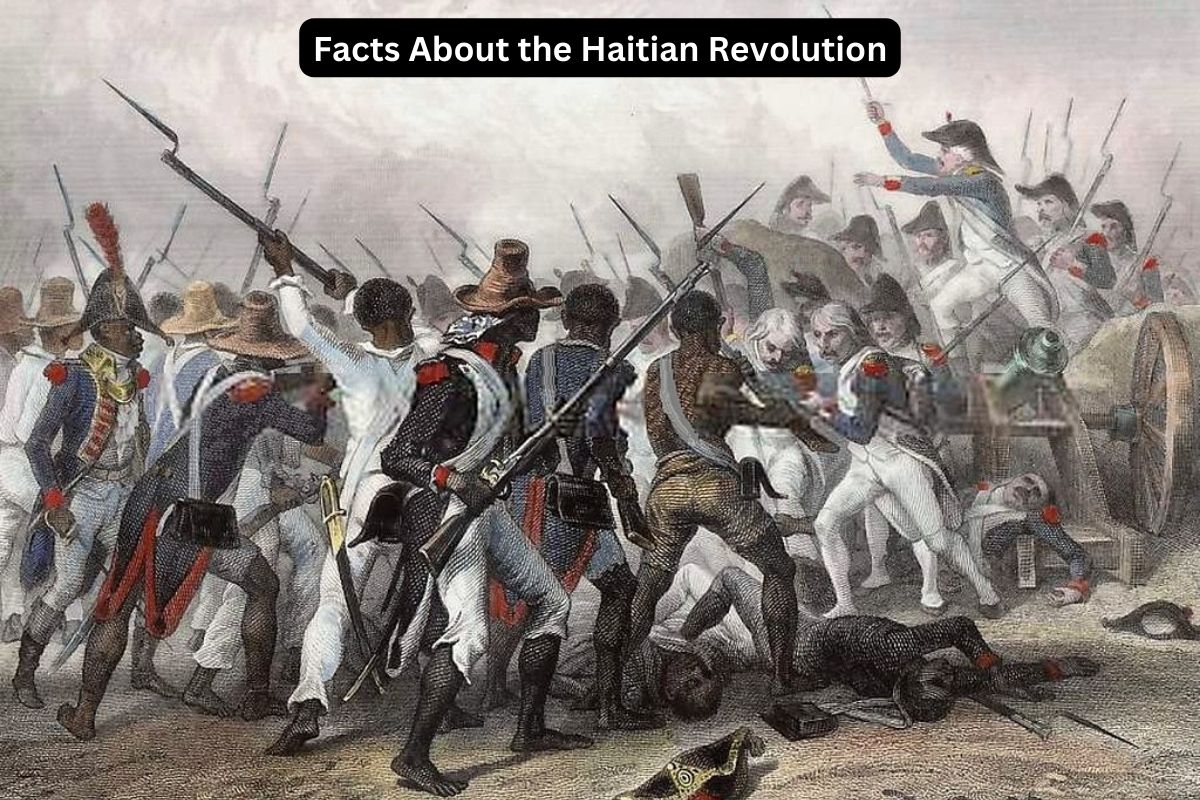The Haitian Revolution, which unfolded between 1791 and 1804 in the French colony of Saint-Domingue (now Haiti), stands as a remarkable and transformative chapter in world history.
This protracted struggle, marked by a slave uprising and the eventual declaration of independence, shattered the chains of slavery and colonialism, making Haiti the world’s first Black republic.
In this article, we delve into the key facts, influential leaders, and lasting impact of the Haitian Revolution, highlighting its significance in inspiring global anti-slavery movements and its enduring legacy of resilience and freedom.
Haitian Revolution Facts
1. Occurred from 1791 to 1804
The Haitian Revolution was a protracted and tumultuous series of events that unfolded over a span of 13 years, from 1791 to 1804. It is often considered one of the longest and most impactful revolutions in history.

2. Took place in the French colony of Saint-Domingue (now Haiti)
Saint-Domingue was a prosperous French colony in the Caribbean during the 18th century. It was the most valuable colony in the French empire due to its highly profitable sugar and coffee plantations, primarily worked by enslaved Africans and African-descendant people.
3. Started with a slave uprising on August 21, 1791
The Haitian Revolution began on August 21, 1791, with a massive slave rebellion that erupted in the northern part of Saint-Domingue.
The catalyst for this uprising was widespread discontent among the enslaved population due to brutal living and working conditions, as well as the ideals of the French Revolution, which espoused liberty and equality.
Also Read: Haitian Revolution Timeline
The rebellion was sparked by a Vodou ceremony led by a Jamaican-born enslaved man named Dutty Boukman. During this ceremony, Boukman and other leaders incited the enslaved population to revolt against their French oppressors.
This marked the beginning of a full-scale revolution that would eventually lead to the overthrow of slavery and colonial rule in Haiti.
4. Led by key figures like Toussaint Louverture and Jean-Jacques Dessalines
Toussaint Louverture, born into slavery but eventually freed, emerged as one of the most influential leaders of the Haitian Revolution. He displayed remarkable military and political acumen, rising to the position of governor-general in Saint-Domingue.
Louverture initially sought to maintain a degree of autonomy for the colony while still recognizing French authority. He is known for his military strategies and efforts to maintain order during the chaos of the revolution.
Jean-Jacques Dessalines, a former enslaved person, played a crucial role in the later stages of the revolution. After the reintroduction of slavery by Napoleon’s forces, Dessalines led the final push for Haitian independence and declared it on January 1, 1804. He became the first ruler of the independent nation, renaming it Haiti.

5. Slavery was abolished in French colonies in 1794
The French National Convention, during the height of the revolution in France, passed the “Law of 16 Pluviôse, Year II” (February 4, 1794), which abolished slavery in all French colonies, including Saint-Domingue.
This decree granted freedom to enslaved people and marked a significant turning point in the Haitian Revolution.
The decision to abolish slavery was influenced by various factors, including the ideals of the French Revolution, pressure from abolitionist movements, and the need for military support in the ongoing conflicts.
6. Napoleon Bonaparte tried to reintroduce slavery in 1802
Despite the abolition of slavery in 1794, Napoleon Bonaparte, who came to power in France, sought to reimpose slavery in the Caribbean colonies. In 1802, he dispatched a massive expeditionary force to Saint-Domingue with the aim of reestablishing control and reinstating slavery.
This led to a brutal conflict between the French forces, led by General Charles Leclerc, and the Haitian rebels. The Haitians, under the leadership of Toussaint Louverture, Jean-Jacques Dessalines, and others, fiercely resisted the French.
Although Toussaint Louverture was eventually captured and sent to France, the Haitian resistance continued under Dessalines and other leaders.
Ultimately, the Haitian rebels defeated the French forces and declared independence on January 1, 1804, reaffirming the abolition of slavery and establishing Haiti as the world’s first Black republic.

7. Haiti declared independence on January 1, 1804
On January 1, 1804, Jean-Jacques Dessalines, one of the prominent leaders of the Haitian Revolution, declared the independence of Haiti. This historic declaration marked the culmination of years of struggle and resistance against French colonial rule.
The newly independent nation was named “Haiti,” derived from the indigenous Taíno word “Ayiti,” meaning “land of mountains.” Haiti became the world’s first Black republic and the second independent nation in the Americas, following the United States.
8. Became the world’s first Black republic
The establishment of Haiti as the first Black republic was a significant achievement in the fight against slavery and colonialism. It served as a powerful symbol of Black liberation and self-determination in an era when racial inequality and slavery were still widespread.
The success of the Haitian Revolution inspired enslaved people and abolitionists worldwide, including leaders like Frederick Douglass and Harriet Tubman, who saw hope and possibility in Haiti’s example.
9. Inspired global anti-slavery movements
The Haitian Revolution had a profound impact on the global struggle against slavery. It demonstrated that enslaved people could successfully overthrow their oppressors and establish an independent nation.
The revolution inspired other slave revolts and anti-slavery movements in the Caribbean, Latin America, and the United States. It also influenced European abolitionist movements and played a role in shaping the international discourse on human rights and freedom.
10. Left Haiti economically devastated but with a legacy of resilience and independence
Despite its historic victory, Haiti faced significant challenges after gaining independence. The country was economically devastated due to the long and brutal struggle, as well as the indemnity it was forced to pay to France for lost property and land.
The legacy of the Haitian Revolution is one of courage, resilience, and the pursuit of freedom. Haitian leaders like Toussaint Louverture, Jean-Jacques Dessalines, and Henri Christophe are celebrated as national heroes in Haiti for their contributions to the nation’s independence.
The revolution continues to be a source of inspiration for movements advocating for social justice, equality, and human rights around the world. Haiti’s struggle for independence serves as a testament to the enduring human spirit and the power of collective action in the face of oppression.
